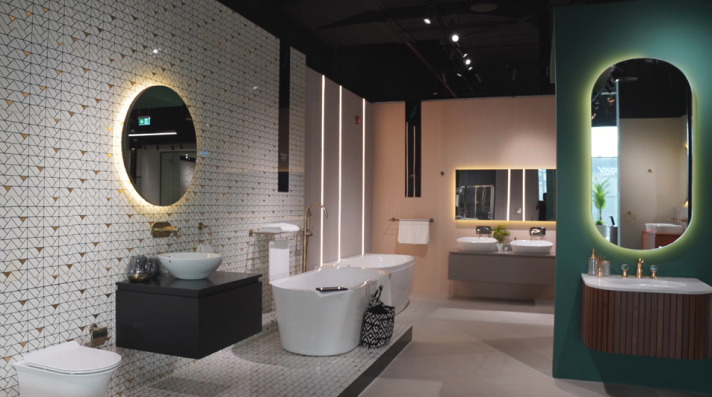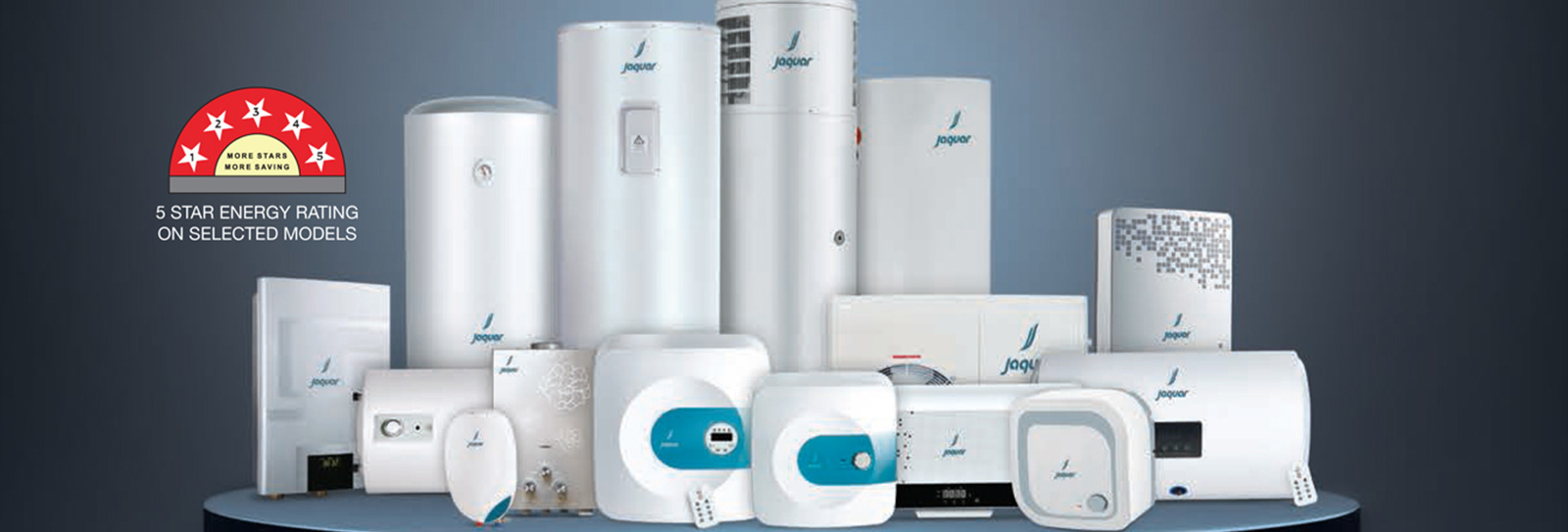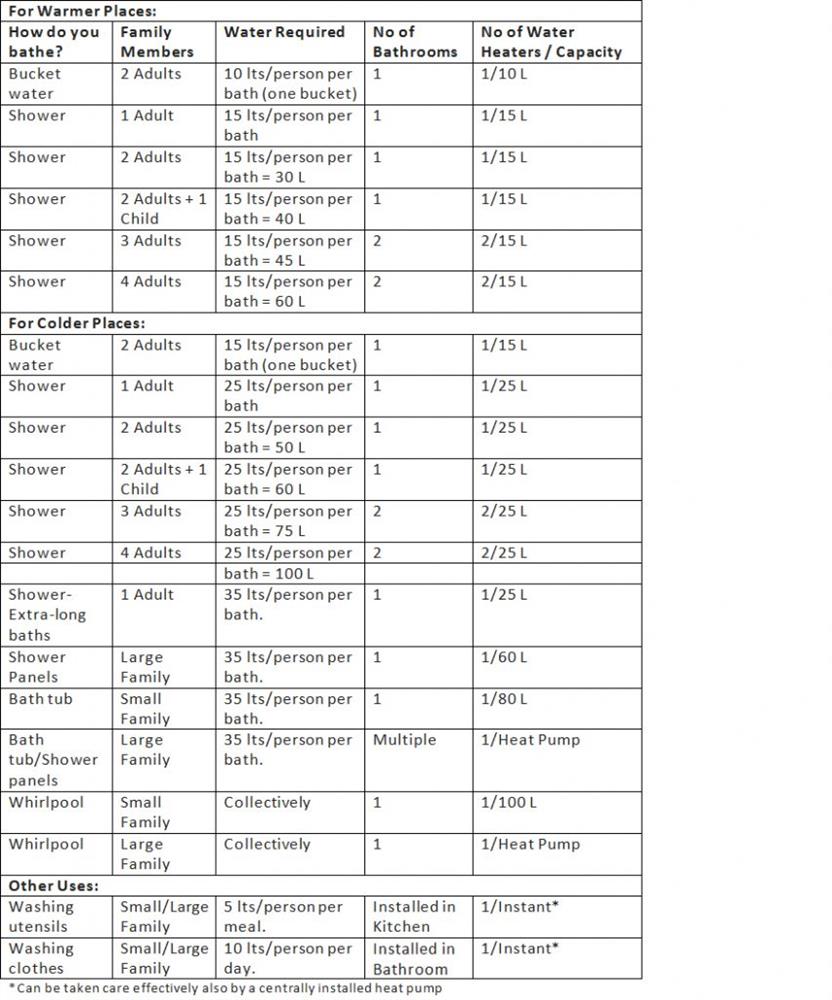Come September, the ninth month of the year, marks the beginning of the end of summer. As autumn sets in, it’s that time of the year, when on some days, you feel the refreshing cold shower that you have been enjoying all along, is not so enjoyable any more. Maybe a tad warm water, you think, could be better; and you turn on the water heater for the first time in the season, and you find it’s quite comforting to the skin. For those, who do not have a water heater at home, its time you step out and purchase one, as weather here is extreme. It’s harsh and punishing.
Water heater, popularly called geysers also, is not a luxury. It is a basic necessity. They are responsible for heating water and consistently supplying hot water to showers, sinks, tubs, and appliances. They make our lives easy, comfortable and liveable.
Typical domestic uses of hot water include bathing, cleaning – washing dishes, clothes – and cooking. Water heaters at home can account for a substantial part of your utility bill each month if you are living in a colder place. Therefore, it is important that you choose the water heaters for your house carefully. While buying a water heater you have to consider two important factors – that it not just fulfils your family’s daily need of hot water but also reduces your energy bills significantly.
As selecting a water heater can be quite confusing, therefore, it is a good idea that you know the storage capacity of the water heater you need and the fuel type that would reduce your energy bills. Unless you have a large house, with many household members, you have to consider of an additional factor – water heater function. For this, it is important to know the types of water heaters available in the market and their uses.
Types of water heaters:
- Conventional storage water heaters:
They are the most popular type of water heaters. Storage water heaters offer a ready reservoir of hot water, ready to be released when you turn on the tap. They are either electric powered that consume electricity or gas-powered which is economical. They need to be continuously heated and come with an electronic thermostat, which cuts off the power supply to the heating coils on attaining optimum temperature. Since it uses energy to keep the water hot even when it is not being used, it has a high standby heat loss and therefore, more expensive to maintain. - Instant water heaters:
- Instant Electric Water Heaters: These are tankless heaters, also known as on-demand water heaters, does not require a storage tank. Tankless water heaters are catching on in the world as an alternative to storage tank models. By turning on the hot water it triggers an electric-powered heat exchanger (see below how it works) that quickly heats the water. Instead of constantly heating water in a stored tank, tankless units only heat water as you need it. They are therefore more energy-efficient than conventional storage water heaters. On the downside, a tankless system can cost much more than a water heater with a tank.
- Instant Gas Water Heaters: These tankless or on-demand water heaters run on gas – both on liquefied petroleum gas (LPG) and liquefied natural gas (LNG). By turning on the hot water it triggers a gas-powered heat exchanger that quickly heats the water. They are even more energy-efficient than instant electric water heaters.
- Heat pump water heaters:
The heat pump is a water heater that transfers heat from air to water. It does so by capturing the energy from the ambient air to give it back to the heat pump’s water tank. Since it uses electricity to move heat from one place to another, instead of generating heat, the electricity consumed is much lower – just one fourth compared to other water heating devices; and so is the operating cost. In other words, they are three or four times more efficient than electric water heaters.
What is the storage capacity of the water your family needs?
Where do you want your geyser to be installed? In kitchens, the requirement for hot water is minimal so a water heater with small capacity can suffice. While, overhead showers in bathrooms require a lot more water, and therefore, require geysers with much larger storage capacity.
If you reside in a place which has a colder climate, and the ambient temperatures are low, it would help to have a water heater with a larger capacity.
If you’re replacing a water heater in one of the bathrooms, do consider if your previous model consistently provided enough heat. If it didn’t, then you should upgrade to a larger size.
If you are going for a conventional storage water heater below is a comprehensive table that will assist you to understand how much hot water you would require for your family size in warm or cold climates and the capacity of hot water heater you should ideally go for.
Selection Criteria on the basis of fuel type and their benefits:
While selecting your water heater, you should also consider the following factors.
- Electric Powered Water Heater:
Cost-effective to purchase and easy to install, the electric water heater is the simplest solution for your household hot water requirement. The tank water needs continuous heating by an electric element, which isn’t as efficient as those powered by other fuels –LPG and LNG. However, they’re less expensive to install and don’t require venting. Electric powered heaters need to be continuously heated and come with an electronic thermostat, which cuts off the power supply to the heating coils when hot. Most water heaters have a thermostat setting of 60oC. Human body temperature is 37oC and any temperature above it feels hot.
Since it uses energy to keep the water hot even when it is not being used, it has a high standby heat loss and therefore, more expensive to maintain. Typically a 100 litres water heater has a standing loss of more than 1 unit/day, while a 70 litres water heater is close to 0.9 units/day, and it decreases as the size decreases. Modern units have good insulation to reduce standing loss and are equipped with a digital display unit and a cordless remote control. If your hot water demand is not very high, then it may be a good option. While buying you should remember that wattage of the water heater has nothing to do with the consumption of electricity. The wattage of a water heater makes the water heat faster or slower. If you are buying an instant water heater of 4.5 kW, the water will heat faster than a water heater of 2 kW. Before buying a 4.5 kW wattage water heater, check if your house is connected to a higher load. Also, ensure if the geyser you are buying has a 5-star rating which will give you the highest energy efficiency. As per Bureau of Energy Efficiency (BEE), a geyser with 5 Star rating has standing losses (at kWh/24 hour/45°C) of ≤ 0.461 only. Anything less than that will increase your energy cost.
So what is the ideal size of an electric water heater? According to Bijli Bachao website, the ideal size of the water heater should be close to the total volume of hot water required at one go. If two members take bath one by one and use 15 lts of water, then a 15 lts water heater will make sure that the water is optimum hot when one goes to take bath (at places where the tap water temperature is not too low). If the tap water temperature is too low (especially in cold places) only a 25 lts capacity hot water will work if 25 lts of water is required for a bath. - Gas Powered Water Heater: Gas water heaters are the ones which run on gas – both on liquefied petroleum gas (LPG) and liquefied natural gas (LNG). They get their supply through gas pipelines and gas cylinders. If you have access to natural gas, it can be a very fuel-efficient and cost-effective way to go. This type of water heater uses a gas burner at the bottom of the tank to heat it, with a vent or a kind of chimney that allows the carbon dioxide and water vapour to be released outdoors. A gaslighter or an electric spark produces the flame automatically. Gas-powered heaters cost more than electric heaters but are more efficient to operate.
- Instant Electric/Gas Powered heater: They work on the principles of a heat exchanger. A heat exchanger is a device that transfers heat from one source to another just like in your air conditioner, and refrigerator. In the case of instant electric powered heaters, it transfers heat generated by electric coils to the water, while in gas-powered instant heaters it transfers heat generated by the burner to the water that comes out of your faucet. The exchanger is activated by the incoming flow of water. So when the hot water tap is turned on, the incoming water circulates through the activated exchanger, which heats the cold water to your pre-set temperature.
Choosing a brand or manufacturer of water heater:
Once you’ve decided on the fuel type and figured out what size of the water heater storage that will be enough for your hot water needs, you have to decide on the brand and the manufacturer. We suggest you go with the brand which offers better customer service and trust besides having built-in features of safety, longevity, and economy.
Why you should choose Jaquar Water Heaters?
Jaquar water heaters are designed to give you more features when it comes to safety, longevity and energy efficiency.
1.More Safety:

Jaquar water heaters come with the following features which make them safer than other water heaters.
- Double Safety Thermostat – dual overheating control mechanism cuts off power automatically even if the primary cut off fails
- Multi-function Safety Valve – discharges water and acts as a non-return valve if pressure or temperature exceeds preset limits
2. More Life:

Jaquar water heaters are equipped with features that give them extended life compared to other water heaters.
- Superior Quality Glass-lined Inner Tank – prevents rust, corrosion and prolongs the life of the inner tank
- Single/Dual Glass-coated Incoloy Heating Elements – made of high quality steel for quicker heating and to prevent scale formation
3. More Savings:

It makes more sense to buy Jaquar water heaters as some of its features help you save money in the long run.
- High-Density Insulation – CFC-free PUF insulation, with added thickness to minimise heat loss and maximise energy savings
- Cathodic Protection – a sacrificial Magnesium Anode protects and saves the tank from electrochemical reactions during the water heating
4. Attractive Digital Features:

Most of Jaquar water heater models come equipped with features such as digital display and remote operations.
- Cordless Remote: Wireless remote control for operational ease
- Full Digital Display
- On/Off Timer
- Clock Temperature Setting
5. Unmatched Customer Service:
- Besides, Jaquar Water Heaters come with a warranty along with service back-up. It has a dedicated service centre which is one of the strongest points that make Jaquar the strongest player in the industry. Jaquar also offers a Preventive Maintenance Service for hassle-free bathrooms
6. Trust:
- Plus, quality sets Jaquar apart. The high standards of its products have given it a reputation as the most valued premium brand in the bathing industry.
View Jaquar Water Heaters Click Here



